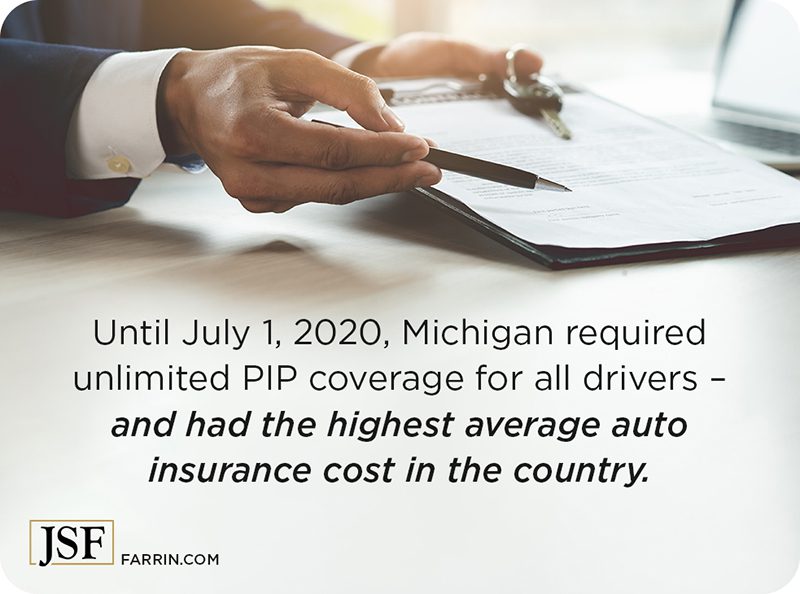South Carolina is not a no-fault state. There’s a bit more to it than that, though. Different states have different ways of dealing with car accident fault, but that can have a profound effect on your car insurance rates, what you may get after an accident, and what you might have to pay if you’re at fault for an accident.
What Kind of State Is South Carolina if Not a No-Fault State?
South Carolina is an at-fault state that uses modified comparative negligence to determine the amount of fault. In other words, if you are deemed less than 50% at fault for the accident that harmed you, you may seek compensation from the other driver and their insurance policy. The amount of compensation you can seek is modified by your amount of fault in the accident that injured you – if you are 25% at-fault, your potential compensation will be reduced by 25%.
For example, if your total damages (medical bills, lost wages, pain and suffering, etc.) were $100,000.00 and you were found 25% at fault for the wreck, you may be entitled to $75,000.00.
At-fault states require drivers to carry liability insurance that will cover other drivers in a crash. If a driver is at-fault in a crash and is injured, an added feature like MedPay (also referred to as personal injury protection or PIP) may help them with their costs, as neither the other driver’s insurance nor their own standard liability coverage provide coverage for their medical bills.
The South Carolina Supreme Court adopted the doctrine of comparative negligence in 1991 in the Nelson v. Concrete Supply Co., 303 S.C. 243, 399 S.E.2d 783 (1991) case saying, “a plaintiff in a negligence action may recover damages if his or her negligence is not greater than that of the defendant. The amount of plaintiff’s recovery shall be reduced in proportion to the amount of his or her [own] negligence.”
What Is a No-Fault State?
So, what does no-fault state mean? In no-fault states, the damages and medical expenses caused by an accident generally come from a driver’s own insurance policy regardless of who is at fault for the accident. Policies in no-fault states include Personal Injury Protection (PIP) coverage, with a few exceptions. And while it may seem like fault is removed from the equation, it isn’t always.
What Does It Mean to Be a No-Fault State?
No-fault states generally restrict the rights of drivers to pursue claims of pain and suffering against other drivers. While no-fault insurance generally limits lawsuits, some no-fault states have what is called a “tort threshold.”
A tort threshold is a point at which an injured driver is allowed to sue another driver for compensation. In some states, the threshold is monetary. Once damages pass a certain number, a lawsuit is allowed. In other no-fault states, the threshold may simply be the type or severity of the injury involved.
Filing an Insurance Claim in South Carolina
When you’re injured in an accident by another driver in South Carolina, you’ve suffered a personal injury and can make a claim against the other driver’s insurance and, if necessary, file a lawsuit. In South Carolina, you generally have three years to file before the statute of limitations runs out, though there are exceptions and the rules vary in some specific circumstances.
You can contact the other driver’s insurance company to file a claim, and follow their claims process. Ideally, you would be compensated for all medical expenses related to your injury, as well as any other harms and losses you suffered. Be aware that the insurance company is highly unlikely to simply accept 100% fault on behalf of their insured driver. Expect negotiation at the very least, and possibly pushback or an outright denial if they believe you were more at fault.
Hire an Attorney to Negotiate on Your Behalf
South Carolina’s comparative negligence doctrine leaves room for interpretation. This is where many car accident victims can be left holding the bag for expenses that shouldn’t necessarily be theirs to bear.
For example, you may think you’re not at fault, while an insurance company may argue that you’re 50% at fault. Who is right according to the law? And what will you do if the insurance company simply refuses to budge from their conclusion?
A lawyer knows how to negotiate, how to gather evidence (and where to look for it), and we’re equipped to negotiate on your behalf. We can fight to try and reduce your liability and help you fight for all of the compensation you may deserve. We know how insurance companies operate, the methods they use, and how to try to counter them.
Hire an Experienced Attorney
South Carolina is an at-fault state, but the reality of making a claim can be far more complex than it seems. Don’t let an insurance company bully you. If you’re hurt in a car accident, consider hiring a personal injury attorney to represent your best interests. We can handle the insurance company and you can focus on recovery.
You May Also Be Interested In
When to Stop for School Buses in SC (and Why)!
How to Get South Carolina Car Accident Reports (and More)
SC Traffic Fatalities Decline in 2022 – But Not in Greenville County




